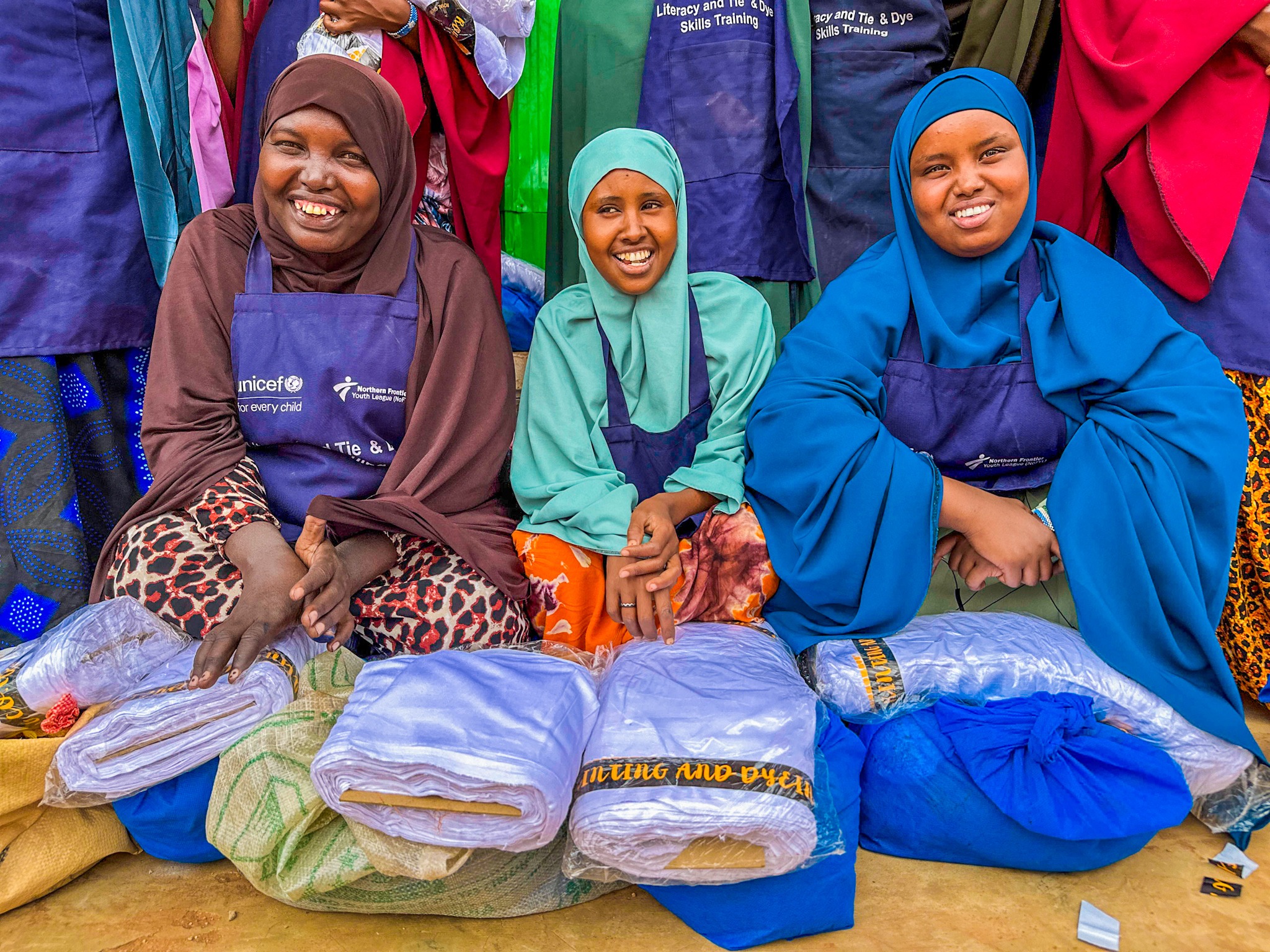For three months, laughter and the rhythmic sounds of work filled NoFYL’s Women and Girls Safe Space in Doolow, where 30 vulnerable women and girls gathered daily to learn the art of tie and dye. Supported by UNICEF, the training aimed to equip participants with practical skills to start small businesses and reduce dependency, fostering both resilience and economic empowerment.
As the training came to an end in September, the participants proudly showcased the colorful fabrics they had created, each piece a symbol of creativity, courage, and hope. To help them begin their new ventures, NoFYL provided each participant with startup kits containing fabric, dyes, gloves, salt chemicals, and soda ash – essential materials to launch their own tie-dye businesses.
“Before this training, I didn’t have any source of income,” says Hodan*, one of the participants. “Now, I can make beautiful clothes and sell them. The colors have truly changed my life.”
“The startup kit gives me the tools to turn what I’ve learned into a real business,” adds Hodan. Now I have everything I need to start my own business and support my family. I feel empowered and ready to work.””
For Maryan*, a 27-year-old participant living with a physical disability, the program meant more than just learning a skill, it was an opportunity to prove her potential.
“I used to think people like me couldn’t do anything,” she says proudly. “But now, I know I can create beautiful designs and work and earn my own income. This training has given me confidence and independence.”
The impact of the training was visible not only in the women’s newly learned skills but also in their renewed sense of purpose and community. Many have already started producing and selling tie-dye fabrics in local market in the site, contributing to their families’ livelihoods.
However, participants expressed that the three-month period was too short, especially compared to the six-month programs conducted previously in Bardheere and Belet-Xaawo.
“We learned a lot in three months, but we still need more time to master the techniques and improve our designs,” said Amina*, another trainee. “We hope the program can continue so more women can join and benefit like we did.”
The success of the Doolow skills training highlights how investing in women’s skills can create sustainable change. Through the dedication of NoFYL and continued support from UNICEF, women and girls are transforming from survivors into building a future defined by strength, color, and self-reliance.
“Empowering women with skills is empowering the entire community,” says Hamdi, NoFYL’s case worker in Doolow. “When women thrive, families and societies grow stronger.”







